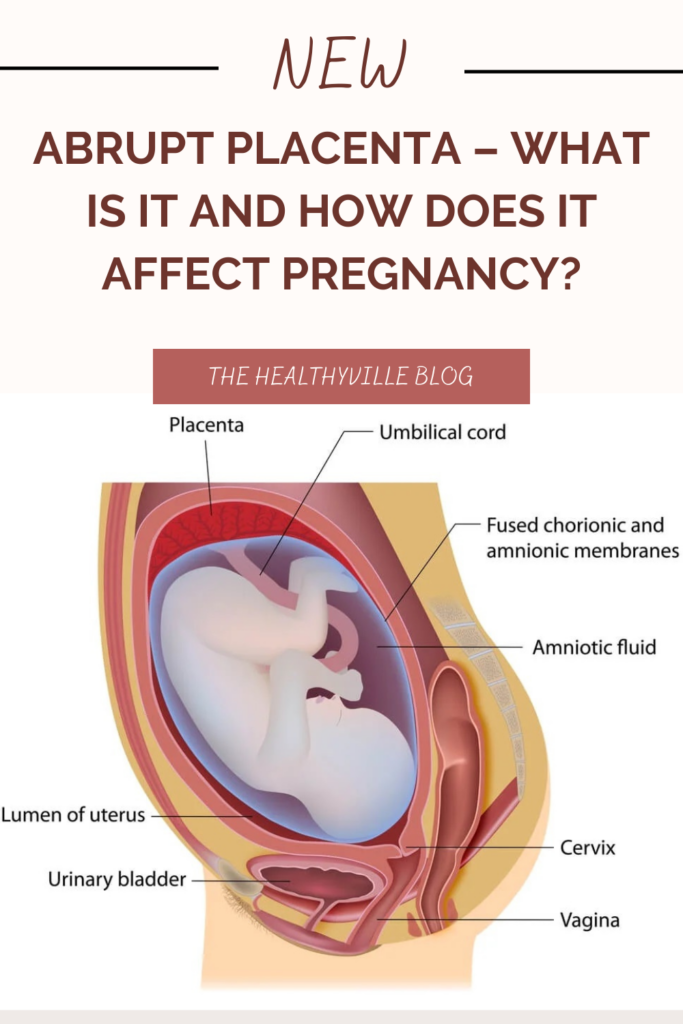Abrupt placenta is defined as premature placental abruption, that is, before delivery. Find out about the complications it can cause!
As a general rule, the term abrupt placenta refers to the premature detachment, before birth, of the placenta, that is, it separates from the upper or lateral part of the maternal uterus. Thus, the placenta, an organ that forms during pregnancy, cannot carry out its usual functions
Normally, this structure is attached to the baby through the umbilical cord and provides it with nutrients and oxygen. It is also responsible for eliminating waste substances present in the blood of the fetus.
Let’s see more about it.
Degrees within the abrupt placenta
Ultrasound is an essential technique when establishing the diagnosis. It is easy to perform and is based on the use of ultrasound, so it does not emit radiation that could affect the fetus.
The most common is to perform an abdominal ultrasound, but the transvaginal route is also very helpful.
On the other hand, we can distinguish different degrees of severity within this medical disorder:
- Grade 1. If there is uterine bleeding, it is reduced and uterine contractions are also scarce. In principle, there are no signs of suffering on the part of the baby.
- 2. In this case, the bleeding is moderate and the number of contractions increases. Also, the fetus has a faster than normal heart rate (possible sign of pain).
- Grade 3. Thus this is the least common and most serious condition of this medical disorder. As a general rule, the mother presents an intense hemorrhage together with continuous and very painful contractions. The medical team must perform an emergency caesarean section to try to save the baby if she has developed enough.
Causes
At the moment, the exact cause of premature placental abruption is unknown. However, direct trauma to the abdominal area can cause this medical condition.
Likewise, specialists have been able to identify a series of risk factors. This means that they increase the possibility of developing it.
Having developed a previous pregnancy with placental abruption. Or present a multiple pregnancy, that is, gestation of more than one baby.
Unhealthy habits such as tobacco use, alcoholism or taking toxic substances such as drugs. In particular, we must highlight cocaine use as a risk factor.
Have higher than normal blood pressure. Also, both chronic hypertension and during pregnancy only are included.
Certain diseases, such as diabetes. It also affects having an advanced age, especially above 40 or 45 years.
Certain disorders in the mother’s uterus such as abnormalities or infections, for example, chorioamnionitis.
Most common symptoms
- Tiredness, fatigue or general weakness.
- Discomfort in the abdominal area, which can extend to the back.
- Uterine contractions. There may also be tenderness in the uterine area.
- Nausea and vomiting.
- Hardness in the abdomen and in the uterus.
- Vaginal bleeding, which can vary in amount or intensity.
Treatment
Specialists have not yet discovered a way to reattach the placenta to the uterine wall. However, the medical team has developed a series of guidelines depending on the stage of pregnancy.
If the pregnancy is in the early stages, rest is an essential recommendation. Also, they may have to hospitalize the mother in case of complications.
However, if doctors control the disturbances, she can move into her home. The medical team may also advise the administration of certain medications to keep the baby healthy.
If the pregnancy is close to delivery but the experts control and reduce the alterations from the abrupt placenta, a supervised vaginal delivery takes place.
If the medical condition is serious, the medical team usually chooses an immediate delivery or the use of cesarean section. In this way, a blood transfusion can be useful in case the bleeding is very intense.
Don’t forget to SHARE all you now know about this pregnancy complication with your friends and family on your social networks!

